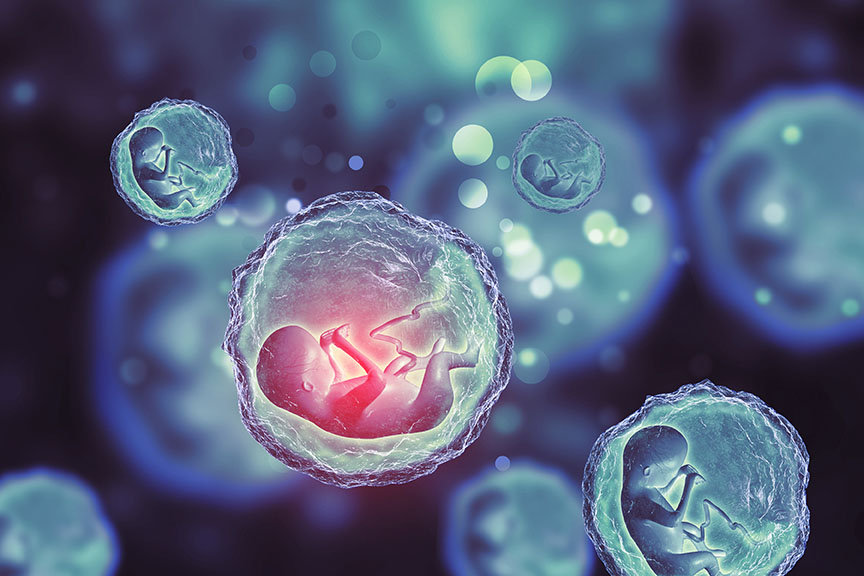

An embryo is a baby animal or plant in the early stages of development. It is formed when a sperm fertilises an egg. The fertilised egg, called a zygote, divides into many cells, which then begin to form different organs and tissues.
The embryo is very small and fragile in the early stages of development. It is protected by the amniotic sac, which is a fluid-filled sac that surrounds the embryo. The amniotic sac helps to cushion the embryo and keep it warm.
The embryo develops rapidly in the first few weeks after fertilisation. By the end of the first month, the embryo has all of the major organs and tissues that it will need to survive.
The embryo of a human is formed in the womb.

Noun: embryo, fetus, germ.
Adjective: embryonic, germinal.
Synonyms: seed, bud, nucleus.
Antonyms: adult, mature, fully developed.
The word "embryo" comes from the Greek word ἔμβρυον (embrion), which means "young of an animal enfolded in the womb". The word ἔμβρυον is made up of two Greek words: ἐν (en) meaning "in" and βρύον (bryon) meaning "bud" or "sprout".
What is an embryo?